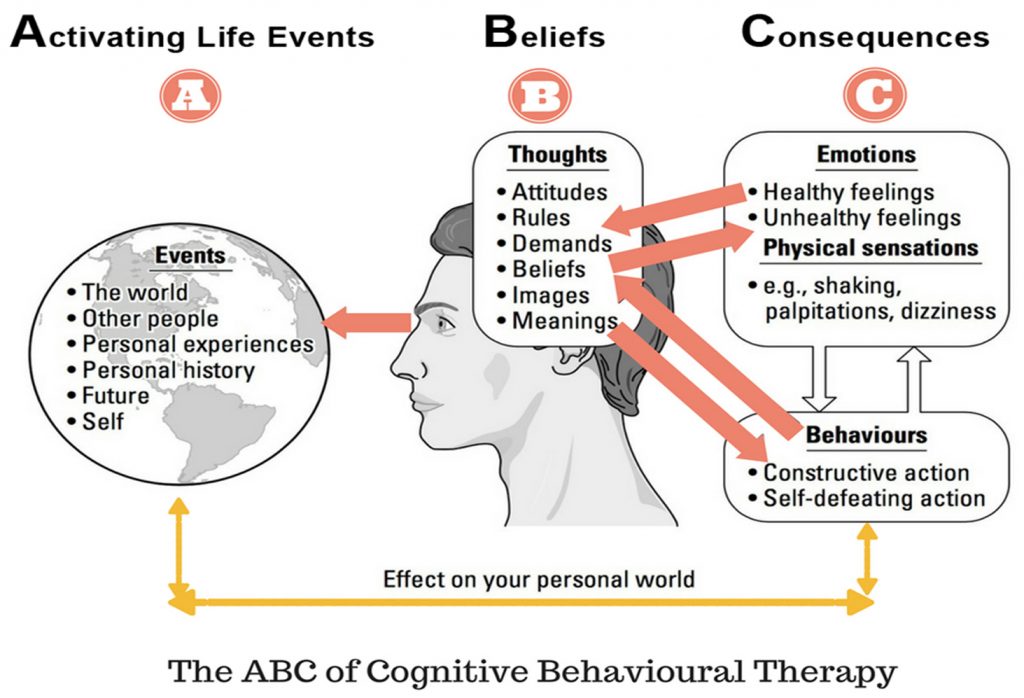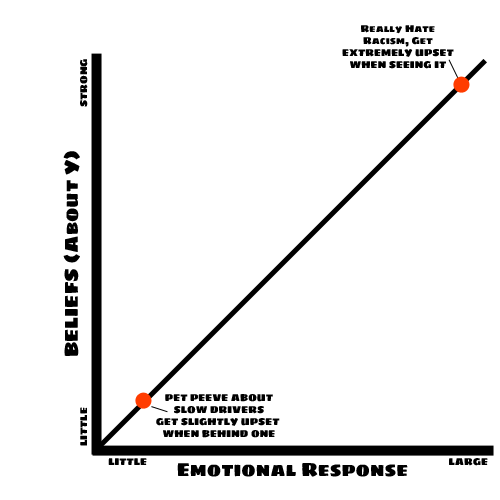Other People Have No Power to Offend You
There is a commonly held belief that other people can offend you. In this article I’m going to discuss why that is not the case, which might anger you or relieve you. If you want there to be a scapegoat for why you get mad, rather than to take personal responsibility for getting upset, then you won’t like the idea that no one can offend you. If, however, you want to live a life in which you never get offended, because you would be happier, then you would be relieved to hear that this is possible.
A Formula For Getting Offended
Mr. X says Y. Ms. A believes Y and so she feels an emotional boost because someone else agrees with her. Ms. B does not believe Y. In fact, Ms. B gets offended, because she thinks believing Y makes you a bad person. Ms. B gets offended while Ms. A does not.
There may also be a Ms. C, who might simply not care what others believe at all, in the sense that she’s emotionally indifferent (or detached) when hearing various perspectives. Ms. C may care to hear different beliefs (because she cares for people and their individual life stories), but understands everyone has different perspectives. She tries to understand why they believe the way they do, in order to understand and relate to them, but she doesn’t take other’s beliefs personally.

Because some people do not get offended when hearing Mr. X say, “Y,” we know for certain that Mr. X did not say something inherently offensive. The definition of “offensive” is something that causes the listener to feel insulted, angered, annoyed, etc. If some people can listen to what’s said and not feel insulted, angered, or annoyed, then what was said is not inherently offensive. Something else, besides what’s said, is causing Ms. B to feel offended.
Why Do People Get Offended?
People get offended because of their personal beliefs about the activating life event or action (A) that occurred. In this example, the activating life event (A) is that Mr. X said, “Y.” Ms. B had a belief (B) that anyone who says or believes “Y” is a bad person, and the consequence (C) was that she got offended from hearing it.

Ms. A and Ms. C did not have that belief, so they were not offended. Thus, the root cause of becoming offended are the beliefs that a person holds.

Chemtrails or Contrails? An Example Case
Here’s an interesting real-world example of how this works and why it’s obvious that the offense is not from the activating life event or action (A). Imagine a plane has flown above you and left a trail of white in the blue sky. For this example that is the action (A) that occurred.
Ms. B believes (B) that these are chemtrails and she believes (B) that the chemicals in the sky are going to harm her, her family and her animals who play and lay in the grass.
Ms. A believes (B) that these are chemtrails and she believes (B) that the chemicals are good and that the people spreading them are trying to protect us.
SIDENOTE: I have literally heard both of these explanations. I’m not making that last view up.
Ms. C believes (B) that these are just contrails and she believes (B) that they are harmless and nothing to even think about or consider.
The emotional consequences (C) of that would be that Ms. B would feel offended that the planes are spraying harmful chemicals into the air and are harming her and her family (in her belief (B)), Ms. A would not feel offended but would be happy that people are out there trying to protect us (B). Ms. C. would not give it a second thought and be neutral.
The plane is not offending Ms. B at all. Ms. B’s beliefs about the plane leaving white behind it are why she is offended when seeing it. If she had a different belief then she would not be offended. With Cognitive Behavioral Therapy and other techniques you can change your beliefs.
How Strong Your Beliefs Are Determine Your Happiness/Disgust Response
Your happiness levels will drop or raise proportionally to how strong your beliefs are (whether positive or negative). If you hear someone say something that you believe to be slightly wrong, you will get a little upset. If you think someone said something that is extremely bad, then you will be very upset.

If you believe someone said something right, but don’t care, or just don’t feel strongly about that topic, you might not get any happier, or only slightly happier to hear it. But if someone says something that you feel very strongly about (in a good way), then you will be very happy to hear it.
Perhaps someone who you are attracted to just said they like the way you look. You have beliefs that that is a very good thing (because it means your chances of hooking up are higher), then you will be very happy to hear it. If you are not interested in them, and they said that they like the way you look, you might be slightly happy to hear that, but not care nearly as much as you would if you were attracted to them.
Myriad Perceptions
Every single person has a different perception and those perceptions change through time. There are plenty of things I have heard in the past that have offended me. However, I have changed my beliefs (thus my perceptions) and they don’t offend me anymore. I perceive them neutrally rather than negatively now.
Because being offended is all about your beliefs, and because you have power over your mind, then you have the power to never be offended. It might not be easy to change those beliefs, but it is possible.
Do you feel better knowing that you can’t be offended, unless you let yourself be, through your beliefs? Or do want to be offended? Some people stuck in the drama triangle, in the victim mentality or savior role, want to be offended on behalf of themselves or others. It’s a good idea to be mindful about how this article made you feel.
If you want to start to work on your beliefs today, question them! If you have a belief that there are chemtrails, for example, question whether someone is doing it to help people rather than to harm them. Same goes for beliefs about vaccines and Trump (a couple of rather explosive topics). There is nothing wrong with questioning your beliefs. You may decide you were right in the end. But questioning is always preferable to just accepting an old limiting belief unquestionably.
Yes, sometimes people actually try to harm others, cause offense, etc. But you know what? If you aren’t offended, you take away what they’re after. The end result, if you don’t let yourself get offended, is that you feel better (which is awesome), and that they don’t get what they’re after.
Living well is the best revenge.
George Herbert
When you feel better, rather than offended or angry, you can think of new solutions to problems, make more money, and live a more satisfied life (Happiness Advantage). Yes, if you are happy, you will get sick less often and stay sick for a shorter period of time. Even if someone was trying to make you sick, for whatever reason, not being offended or angry would give your immune system a boost so you can counter anything coming at you.
If you continue to let yourself be offended without trying to change your beliefs to feel better, you are literally becoming a willful slave of whoever or whatever offends you. The reason for this is that whatever they do or don’t do ends up controlling your emotions (rather than you controlling them). You will always feel out of control when you let others offend you.
Choosing to not be offended is the best gift you can give yourself. So, next time you feel offended, question why you got upset. Be mindful about it. And rather than engaging in an argument about it with someone else, take time for yourself to feel your emotions and heal yourself.


